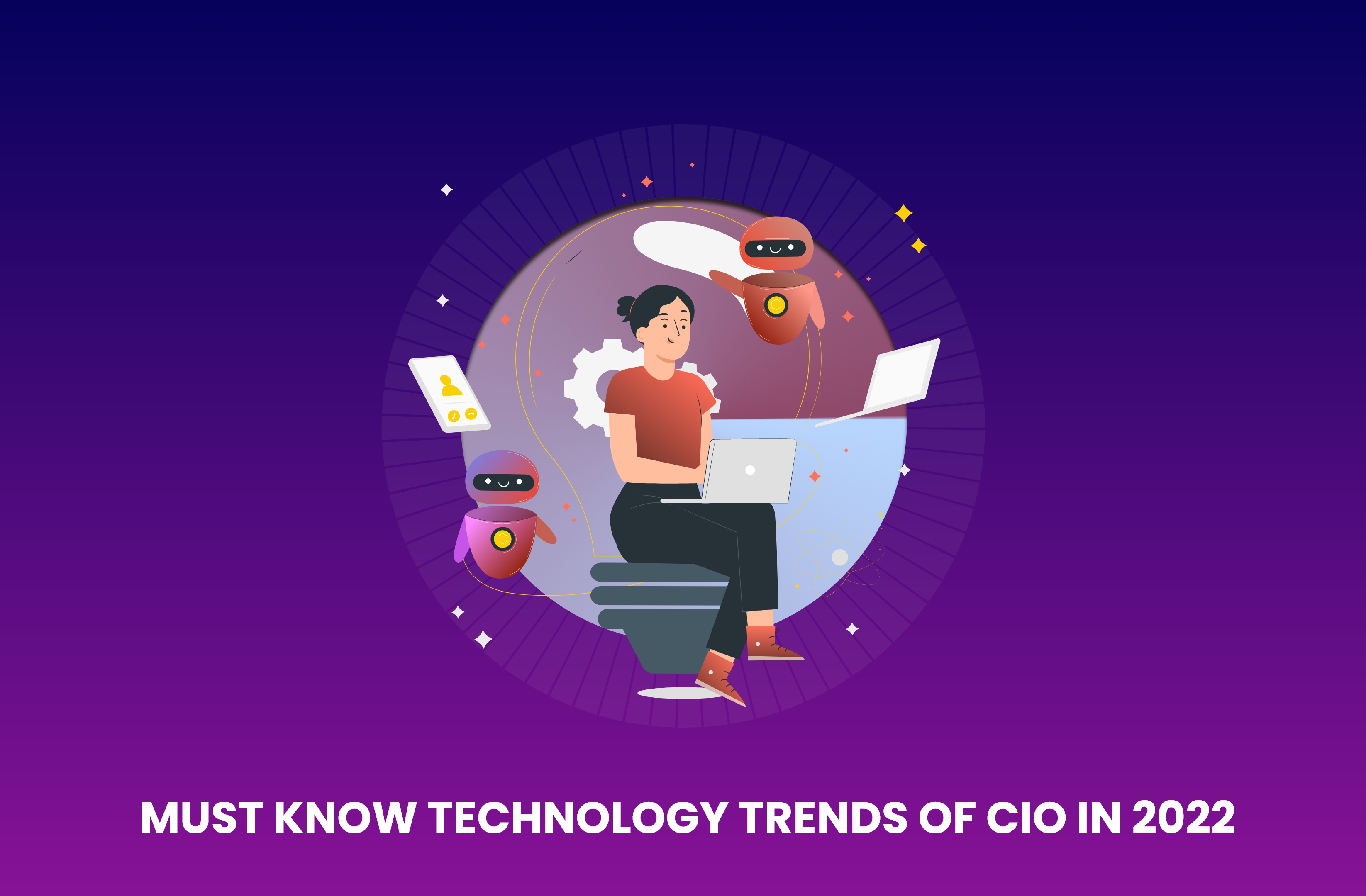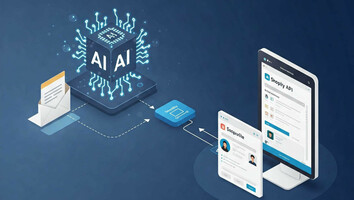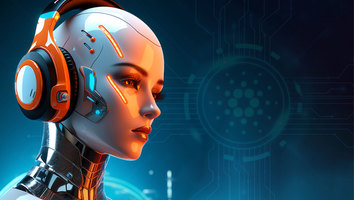Artificial intelligence and the creation of trust ecosystems will be two of the most important technological developments for CIOs and business leaders to watch in 2022.
CIOs have become a critical component of plans to manage a growing client population that is essentially more technically savvy, thanks to the digital revolutions that have developed in enterprises commencing around 2020.
According to a McKinsey global survey of C-suite executives, the pandemic advanced firms' digital transformation by three to four years in just months. CIOs have now escaped the crisis, and the new imperative is to connect massive transformation to business strategy.
In this post, we’ll be discussing the top tech trends for CIO in 2022.
- Widespread automation
The method of swiftly recognizing and automating as many IT and business operations as possible is now known as hyper-automation. Business executives, particularly CIOs and CTOs?
CIOs and CTOs, in particular, are business pioneers. Will be sought to lead their businesses in automating every procedure imaginable. Organizations have struggled with automation initiatives in the past due to a lack of a strategy for deploying hyper-automation. Hyper-automation will be more successful if AI and machine learning processes are developed. Organizations can enhance productivity, reduce employee workloads, and increase profitability by automating critical business activities.
- Upskilling the Hybrid Workforce
In the coming decade, talent will be a valuable commodity, as remote work expands the talent pool and CEOs turn to IT to move businesses away from traditional systems and toward innovation. According to a Cisco survey of C-suite executives, 85 percent agree that in the all-digital workplace, the capacity to recruit, retain, and develop personnel would be crucial, but just 46% have plans in place to develop talent in 2022.
Digital natives – individuals who grew up in the information era and are thus equipped to flourish in a model that relies on remote work technologies – are more valued in hybrid work since it necessitates a new set of abilities.
- Generative AI
The promise of generative AI is generating a lot of hype, from natural-language generation models that can create computer code to deepfake techniques. It's not all glitz and glam. There are some interesting enterprise uses for generative AI, which is significantly more dynamic than the machine learning that most businesses now utilise.
Generative AI is the ability of artificial intelligence-enabled devices to create new material from existing text, audio files, or images. In other words, it is based on algorithms that detect the underlying pattern of input and generate material that is comparable and realistic.
- Blockchain Applications
Open-source distributed databases and ledger technologies are starting to see business applications. The four most important use cases cited by IT leaders in the survey are secure machine-to-machine interaction in the Internet of Things, shipment tracing and contactless digital transactions, keeping health and medical records secure in the cloud, and securing connecting parties within a specified ecosystem.
- Digital Resiliency will Be a Priority for Businesses.
The pandemic's uncertainty focused attention on business resilience, and while many companies have improved their traditional business resiliency in the last two years, their attention has now shifted to digital resiliency. When a corporation concentrates on quickly responding to any business disturbance rather than anticipating and planning for a disaster, as is the case with business resiliency, this is known as crisis management.
- The Total Experience Begins on the Inside.
Total-experience (TX) is the sum of a company's experiences, which includes multi-experience (MX), customer experience (CX), user experience (UX), and staff experience (EX). Total-experience is a holistic picture of the company in which all of these elements come together.
By using a bottom-up approach to the overall experience, the future CIO may significantly boost consumer and employee confidence, satisfaction, loyalty, and advocacy.
Enterprises must focus on innovations that help offer excellent experiences for all stakeholders in the hybrid workplace, where technology is the backbone of practically all employee, customer, and user contact.
- Smart Space Technology
Smart space technology will be added to this, assisting in the construction of intelligent physical places such as manufacturing factories, retail establishments, and sports stadiums. According to surveys, adopting smart building technologies that assist sustainability, decarbonization, and energy savings have become a top goal for 82 percent of IT leaders.
- Digital transformation will continue to ramp up
COVID-19's effects expedited digital transformation initiatives — namely, shifting traditional ERP and CRM systems to cloud data centres — from years to months, and in some cases, weeks, for most firms, and the trend appears poised to continue through 2022.
The epidemic provided CIOs with an opportunity to play a larger role in the company, and Middle Eastern IT leaders have taken advantage of this to move their organisations toward a digital-first strategy.
What should CTOs and CIOs be focusing on in 2022?
We can confidently predict that 2022 will be the year of technological acceptance and experimentation. Businesses prefer the concept of pilots and small-scale deployments. Because failure and innovation are two sides of the same coin, we can expect a lot of mistakes and trials as companies try to figure out which model is best for them, but the final result will be a much more innovative and distinct market.
As a result of the pandemic lockdown, we've been obliged to participate in Zoom meetings as well. Everyone is familiar with digital technologies, which is why we are referred to as "digital workers." Furthermore, we are willing to question old organizational structures and reject working models that do not meet our requirements and demands.
Final Thoughts
CIOs have unprecedented challenges today in terms of improving business outcomes, transforming business models, modernizing technology, and improving customer experience.
W3Villa technologies provide actionable, objective insights to CIOs and IT leaders, allowing them to make faster, better decisions and improve performance.



